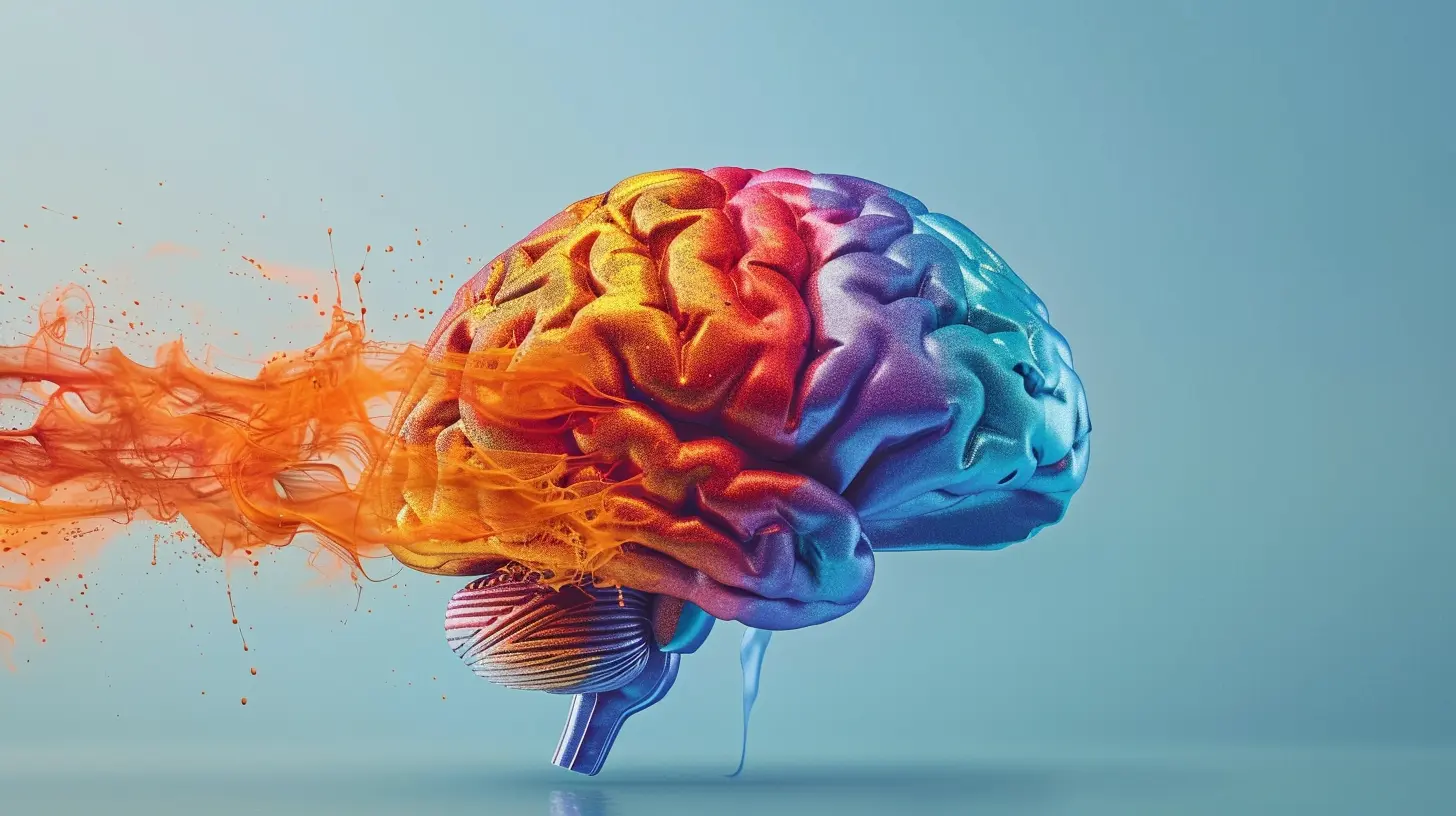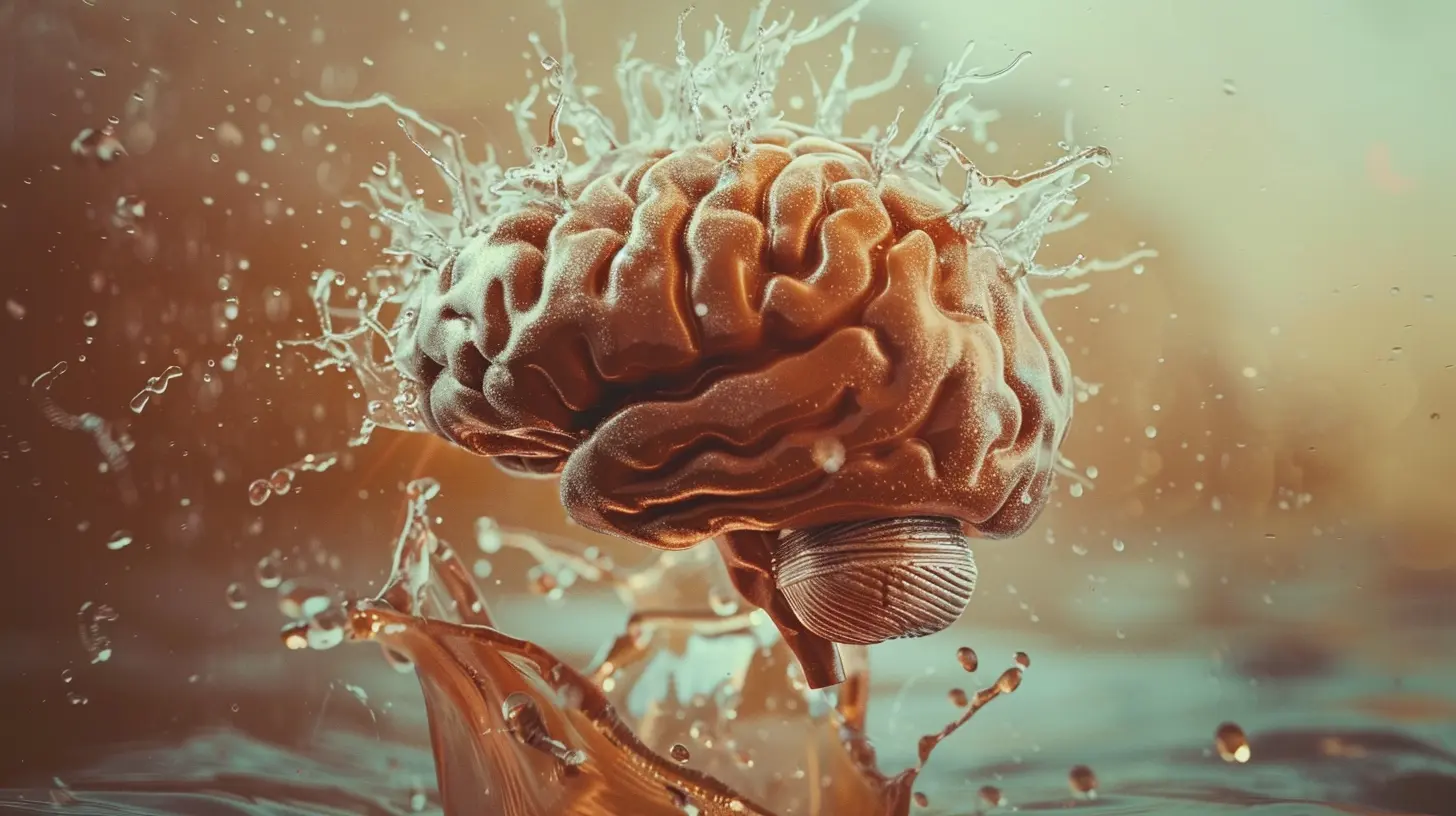How Exercise Boosts Brain Health and Cognitive Function
15 April 2025
Introduction
We all know that exercise is great for our bodies—it keeps our hearts healthy, muscles strong, and waistlines in check. But what if I told you that breaking a sweat does wonders for your brain too? Yep, that's right! Exercise isn't just about looking good; it's about feeling and thinking better too.
If you've ever gone for a run or hit the gym and felt sharper or more focused afterward, there's a scientific reason behind it. Physical activity has a direct impact on brain health, improving memory, cognitive function, and even reducing the risk of mental decline as we age.
In this article, we'll dive deep into how exercise supercharges your brain, the best types of workouts for cognitive health, and why staying active is one of the smartest things you can do for your mind. 
How Exercise Impacts Brain Health
1. Boosts Blood Flow and Oxygen Supply
Your brain thrives on oxygen and nutrients, and exercise helps deliver them more efficiently. When you move your body, your heart pumps more blood, ensuring that your brain gets the oxygen it needs to perform at its best.Think of it like watering a plant—the more water and nutrients it gets, the healthier it grows. That’s exactly what happens to your brain when you exercise. Better circulation means improved cognitive function, sharper thinking, and even protection against degenerative diseases like dementia.
2. Encourages the Growth of New Brain Cells
Ever heard the saying, "You can't teach an old dog new tricks"? Well, science disagrees—especially when exercise is involved. Physical activity triggers neurogenesis, which is the process of creating new brain cells.This is particularly important in the hippocampus, the area of the brain responsible for memory and learning. More brain cells mean better memory retention, improved learning skills, and a lower risk of age-related mental decline.
3. Reduces Stress and Anxiety
Had a rough day? A workout might be just what you need. Exercise acts as a natural stress reliever by reducing the levels of cortisol (the stress hormone) in your body.At the same time, it boosts the production of endorphins—those feel-good chemicals that improve mood and reduce feelings of anxiety. It’s like flipping an internal switch from "stressed-out mess" to "calm and collected."
4. Enhances Brain Plasticity
Brain plasticity, or neuroplasticity, is your brain’s ability to adapt and change. It's how we learn new things, develop new habits, and recover from injuries.Exercise plays a crucial role in keeping your brain flexible and adaptable. It strengthens neural connections and even helps the brain rewire itself when necessary.
So, if you want to keep your brain young, resilient, and ready to tackle new challenges, regular exercise is a must.
5. Improves Focus and Concentration
Ever struggle to concentrate at work or feel mentally sluggish by midday? Exercise might be the solution. Studies have shown that physical activity increases the production of dopamine and norepinephrine—two chemicals that help with attention and focus.This is why many people find exercising in the morning sets them up for a productive day. Even a short walk can give your brain the boost it needs to stay sharp and engaged. 
The Best Types of Exercise for Brain Health
Not all workouts are created equal when it comes to enhancing cognitive function. Here are the best types of exercise to keep your mind sharp:1. Aerobic Exercise (Cardio)
If there's one type of exercise that stands out for brain health, it's aerobic exercise. Activities like running, swimming, cycling, and brisk walking increase heart rate, which promotes blood flow to the brain.Studies have linked regular cardio workouts with improved memory, faster problem-solving skills, and a reduced risk of cognitive decline. The key is consistency—aim for at least 150 minutes of moderate-intensity aerobic exercise per week.
2. Strength Training
Lifting weights isn’t just about building muscle—it benefits your brain too. Strength training helps with memory, cognitive flexibility, and problem-solving skills.Research suggests that resistance training improves the function of the prefrontal cortex, the area of the brain responsible for decision-making and critical thinking. So, next time you hit the gym, remember you're not just working those muscles; you're also fine-tuning your brain.
3. Yoga and Mind-Body Exercises
Yoga, tai chi, and other mind-body exercises combine movement with mindfulness, creating a powerful brain-boosting effect. These activities reduce stress, improve focus, and enhance brain connectivity.Plus, yoga has been linked to increased gray matter in the brain—meaning better memory, attention, and emotional regulation. It's a win-win for both body and mind.
4. High-Intensity Interval Training (HIIT)
Short on time? HIIT workouts might be your best bet. These high-intensity bursts of activity followed by short rest periods are excellent for brain health.HIIT increases levels of brain-derived neurotrophic factor (BDNF), a protein that supports brain cell growth and function. More BDNF means better learning, improved memory, and greater resistance to mental fatigue. 
How Much Exercise is Enough?
The good news is, you don’t have to become a marathon runner or spend hours at the gym to reap the brain-boosting benefits of exercise.Here’s a simple guideline to follow:
- 150 minutes of moderate-intensity exercise (like brisk walking or cycling) per week
- Or 75 minutes of vigorous-intensity exercise (like running or HIIT) per week
- Strength training at least two days per week
- Daily movement (even light activities like stretching, dancing, or gardening)
The key is consistency. Even small amounts of movement throughout the day can have a profound impact on your brain. 
Tips to Stay Active and Keep Your Brain Sharp
Starting an exercise routine is one thing—sticking to it is another. Here are some simple tips to help you stay active and keep your brain in top shape:- Find an activity you enjoy. If you hate running, don’t force yourself to run. Try dancing, hiking, or even playing a sport instead.
- Make it social. Exercising with a friend or joining a group class can make it more fun and keep you accountable.
- Incorporate movement into your daily life. Take the stairs instead of the elevator, walk during phone calls, or do squats while brushing your teeth.
- Set realistic goals. Start small and increase intensity over time. Even 10-minute workouts count!
- Listen to your body. Rest when needed, and don’t push yourself too hard. Exercise should help you feel good, not exhausted.
Conclusion
Exercise isn’t just about staying in shape—it’s one of the most powerful tools for boosting brain health and cognitive function. Whether you’re looking to improve memory, stay focused, or reduce stress, moving your body is one of the best things you can do for your mind.So, if you're feeling sluggish, unmotivated, or mentally foggy, try lacing up your sneakers and getting active. Your brain will thank you for it!
all images in this post were generated using AI tools
Category:
NeuroscienceAuthor:

Eliana Burton
Discussion
rate this article
5 comments
Thornewood Williams
Great article! It succinctly highlights the profound connection between exercise and brain health. Incorporating physical activity into our daily routines is essential for enhancing cognitive function and overall well-being. Keep up the informative content!
May 17, 2025 at 4:32 PM

Eliana Burton
Thank you for your kind words! I'm glad you found the article insightful. Physical activity truly is vital for brain health!
Marley McKay
Thank you for sharing these insights! It’s inspiring to see how exercise not only strengthens our bodies but also nurtures our minds and mental well-being.
April 23, 2025 at 3:26 PM

Eliana Burton
You're very welcome! I'm glad you found the insights inspiring—exercise truly benefits both body and mind.
Lys Moore
This article compellingly highlights the multifaceted benefits of exercise on brain health, emphasizing its role in neurogenesis and cognitive enhancement. By exploring the biochemical mechanisms at play, it underscores exercise as a crucial, accessible tool for improving mental acuity and overall well-being.
April 22, 2025 at 3:41 AM

Eliana Burton
Thank you for your thoughtful comment! I'm glad you found the article highlights the vital connection between exercise and brain health.
Hudson Myers
Exercise significantly enhances brain health and cognitive function by promoting neurogenesis, improving mood, and increasing blood flow to the brain. Regular physical activity can lead to better memory, sharper focus, and overall mental well-being, making it essential for optimal cognitive performance.
April 20, 2025 at 2:59 PM

Eliana Burton
Thank you for highlighting these important benefits! It's fascinating how exercise not only enhances physical health but also plays a crucial role in brain function and mental well-being.
Benjamin Turner
This article effectively highlights the crucial link between exercise and cognitive health, offering valuable insights for mental well-being and performance.
April 15, 2025 at 4:18 PM

Eliana Burton
Thank you for your kind words! I'm glad you found the article insightful. Exercise truly plays a vital role in enhancing cognitive health.




